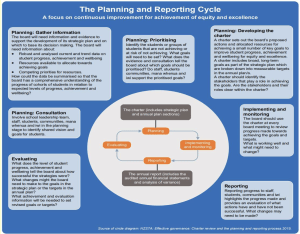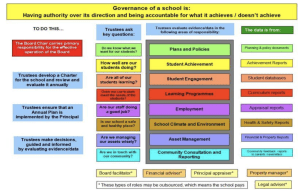He rei ngā niho, he parāoa ngā kauae
To have a whale’s tooth, you must also have a whale’s jaw: To hold the mantle of leadership, one must embody the true qualities of a leader.
Module Objectives:
- Understand governance structures in education.
- Master reporting requirements.
- Develop effective reporting skills.
- Ensure accountability and transparency.
- Understand compliance with regulations.
- Apply ethical principles to governance and reporting.
For all kura there is a ‘truth’ about who they are, how successful they are in the provision of learning outcomes and how they manage the resources, financial and otherwise in that provision. This includes their culture, academic performance, and their potential to provide for the learning and well being of both students (akonga) and staff and their engagement with, and in representation of, their community.
There are multiple lenses through which this ‘truth’ can be observed and performance measured through time and it is these multiple lenses which the Principal is responsible for keeping polished and focused. The focus being not what reporting looks like but why it is structured in the way that it is and how Principals best ensure delivery on reporting outcomes.
Section 1: In School Reporting
The diagrams below provide potential overviews of how reporting on progress is scaffolded within a school, including where the various layers of school leadership assume responsibility, and where the governance role takes over from management, at the point where the Board of Trustees is involved.
While these diagrams are simplistic they clarify the planning and reporting flow that lies behind the annual report, and the external ERO reviews, and the relevance and reliance each has on the other. They show the reporting chains designed to capture an authentic picture of school progress and future planning.
They also connect planning at each level, the setting of school direction, with the compliance pathway to government legislation (The Education and Training Act 2020) and set out where accountability should be visible.
This module invites you to examine aspects of the ‘official’ pictures of school performance, the reporting part of the strategic management and reporting cycle and provides you with the opportunity to reflect on either the shorter annual and internal mechanisms to capture delivery and engagement with the school community (charter, annual plan, analysis of variance) or the longer term external review cycle that determines how the school is sustaining delivery and engagement (ERO reports, MoE statistics).
As well as the references provided, you may need to access your kura’s latest ERO report, current charter and latest Analysis of Variance and Annual Report.


Resource 1: School Planning and Reporting Framework
Resource 2: Toolkit on school planning and reporting for school boards, principals, and staff
Section 2: External Reporting
Resource 3: “How ERO Reviews”
https://ero.govt.nz/how-ero-reviews
Task:
There are two options for this activity, to work either focus on in-school or external reporting. You need only respond to one option although you may wish to explore both for your own professional learning.
The readings provided give background to both the planning and reporting cycle and also to the functions of the ERO interface with schools. Given the nature of reporting at this level you may need to gather data for your response in discussion with your Principal and/or Board Chair.
In approx 150 words either:
EITHER: In-School Reporting
Use page 60 and 61 of the above document (https://web-assets.education.govt.nz/s3fs-public/2024-09/Te-Whakangarahu-Ngatahi-Toolkit-on-school-planning-and-reporting-for-boards-and-principals-September-2024.pdf?VersionId=odPTebMqtwU1HyVxfMEnWOm5sakVtmnY) to reflect on your kura’s progress last year. Talk with your principal or learning partner about your reflections. Post the key reflections from this discussion on the forum.
OR: ERO Reporting
Working with your school’s latest ERO report, reflect on the review process, the recommended changes from that report and the subsequent work done to adjust and refine the planning and reporting cycle in your school. Talk with your principal or learning partner about your reflections. Post the key reflections from this discussion on the forum.
Assessment:
- Completion of all readings.
- Discussion with your principal or learning partner.
- Participation in the online forum discussion.

11 Responses
In 2025, our school has taken a refreshed approach to our strategic goals. In regards to our in-school reporting, each board meeting our principal presents data and progress aligned to the three strategic goals. Following extensive reflection in 2024, the leadership recognised a need for greater cohesion among staff, as previous efforts—though not unsuccessful—left many feeling pulled in different directions. The previous model, which relied on small groups to drive various initiatives, struggled with sustaining ownership and momentum. In response, the school restructured its approach, now focusing collective energy on one goal at a time. This unified direction has fostered stronger engagement, curiosity, and implementation across the team. Leading two of the three strategic goals, I have witnessed firsthand the positive shift in collaboration and progress. The principal’s regular board reports now form the core of his Ministry reporting, providing an efficient and streamlined way to demonstrate progress and impact across all strategic areas.
Module 3 – In school reporting
I found the reflection checklist extremely helpful in generating a robust and meaningful conversation with my Principal. I also found the entire Te Whakangarahu Ngātahi Toolkit on School Planning to be an excellent resource, and my Principal agreed that it was highly valuable. The document has been particularly useful as we undertake our new strategic planning process. It also helps me to be aware that there really is a resource to support any aspect of leadership and planning within a school. There are resources, support and checklists that you can use for your beginning stages of leadership. This is insightful learning for me as I can see that the transition into the Principal role is well supported, often with step by step guides to follow.
The reflection checklist, in particular, supports us to remain accountable and actively reflective about our progress. Through this reflection, we recognised that we could communicate our progress to the community more effectively—especially in a way that is “easily understood.” It has also reinforced the importance of ensuring our community understands how previous goals have been achieved before we seek their input for the next strategic plan. Do we actively go back and feedback to them as we should before asking for feed forward? Not as well as we could.
ERO Reporting:
Our most recent ERO visit in 2024—our first since 2019—was carried out using Te Ara Huarau, the new School Improvement Framework. This collaborative, strengths-based process helped us clearly identify our next steps and align our internal evaluation with national priorities.
Since the review, my principal and I have maintained regular discussions and catch-ups to reflect on our progress and ensure our planning remains responsive. We’ve also had two check-ins this year with our MOE Senior Adviser, which have supported alignment with current Ministry initiatives and reinforced our next steps.
Key improvement priorities identified through the ERO process included:
• Increasing regular student attendance to meet the 2024 Ministry target
• Further integrating te reo Māori and tikanga Māori into the local curriculum
• Strengthening learning partnerships with whānau, particularly for ākonga at risk of underachieving
In response, we’ve refined our planning and reporting cycle to ensure:
• Regular evaluation and reporting of attendance strategies to the Board and community
• Ongoing review of te reo and tikanga Māori integration in classroom and school-wide programmes
• Monitoring and feedback collection on whānau engagement to ensure learning partnerships are improving outcomes
Using Te Ara Huarau has brought sharper focus to our internal evaluation. It continues to guide our improvement efforts, ensuring that our systems remain aligned with our vision of putting the child at the heart of all we do. For our upcoming we are expecting to see some changes with ERO (Term 3) with going back to using Teaching Observation Framework.
Reporting Cycle and Annual Plan Process at Oratia School.
Our school’s annual planning and reporting cycle is a continuous, reflective process grounded in robust data analysis and collaboration. Progress is tracked using mid- and end-of-year achievement data, with variance analysis conducted by curriculum leaders, ISLT, and SLT in relation to Board of Trustees (BOT) priority learner goals. Unit holders contribute key reports,( both curriculum, Hauora, Special Needs etc), alongside insights from student voice—particularly through our student leaders—and staff feedback from school event reviews. ( We use a ‘keep, stop, start’ doing system.
Target students not meeting expectations are closely monitored, with ISLT/team leaders identifying them and further variance analysis by the team and teachers is undertaken to explore underlying reasons. Our cumulative reporting layout allows for ongoing review of Strategic Plan Goals 1–4 throughout the year, with actions recorded and updated termly.
Each BOT meeting (held twice per term) includes a Principal’s Report aligned with the National Administration Guidelines (NAGs) and National Education and Learning Priorities (NELPs), ensuring transparency and shared understanding of progress. This information forms the basis of our Annual Report, which is published and shared with the Ministry and our school community.
I really enjoyed this unit and found it great to spark conversation with my Principal. I found out that he reports on our goals in a slightly different way than I was expecting, he reports to our board monthly on each goal, giving them a progress report, and uses this to report to the Ministry. We have made considerable progress in all three of our Strategic Goals, they are linked into our people, our place and our purpose. Each of these goals are broken down into specific sub goals and our whanau groups, groups of teachers within our school with a shared interest, focus on and work towards. These are also linked into Te Whare Tapa Wha, so we have four whanau groups working on different aspects of our goals.
We have developed our own coaching model which then links to our PGC cycle, which was an area we needed to work on and has effectively been implemented this year. Real time reporting using HERO has been a big part of our mahi over the past few years and last year was no different, it has been quite tricky though as the changes in curriculum have meant that our goals etc have changed so this has felt a bit like one step forward and then one back again. Our second goal around localised curriculum has been mostly achieved as has our third around strengthening Hauora and Wellbeing practices across our school. Our annual plan for 2025 is based around what was achieved in 2024 and what was not, making sure that our focus is clearly outlined for 2025.
Emma,
We use coaching sessions for our PGC conversations and they work really well. Our teachers have three goals, a school wide, personal and then a community goal within the school. I have just completed a round of conversations and the coaching notes that I took have been uploaded into their PGC documentation. Coaching really drills down on what that next step is no matter how big or small. It was interesting to see some teachers needed really simple next steps to progress, whilst others had more complex bigger expectations of themselves. Our coaching was Solution Focus model.
In 2024, our kura made strong progress toward Goal 1, which aimed to develop a schoolwide approach to literacy teaching—an we highlighted to ERO. We continued to evaluate literacy levels across all ākonga, ensuring our strategies were evidence-based and targeted. The school engaged in ongoing professional development around the “Comprehensive Literacy for All” approach, building a consistent understanding of effective literacy pedagogy among kaiako. We are also aligning our efforts with the Ministry of Education, which is currently working with specialist schools to develop a structured literacy programme tailored to our students’ unique needs. Although we are still awaiting formal access to this MOE Specialist School Structured Literacy PD, our internal efforts have laid a solid foundation. This alignment has already led to positive shifts in learner outcomes. Our collaborative and sustained focus is fostering a more consistent, inclusive, and responsive literacy environment across the kura.
Kia ora and thank you for your thoughtful comment on my statement. It’s great to hear about the strong commitment to developing a schoolwide literacy approach, especially through your engagement with “Comprehensive Literacy for All.” Your alignment with MOE’s structured literacy initiatives and evidence-based strategies is clearly making a positive impact. Ka rawe on the foundations you’ve laid—it’s inspiring to see such a focused and collaborative effort to lift outcomes for all ākonga.
ERO Reporting
At Taumarunui High School, we are well into preparations for our upcoming ERO review scheduled for 16th June. Our last ERO report emphasised the importance of strengthening internal evaluation, building leadership capability, and enhancing curriculum development. Since then, we have focused on refining our planning and reporting cycle to ensure clear alignment between strategic goals, curriculum delivery, and pastoral care outcomes.
We have strengthened our data collection systems and increased opportunities for staff and community voice to be captured and reflected in our charter and analysis of variance reporting. Reporting is now more focused on transparency, accountability, and continuous improvement, in line with the expectations outlined in the School Planning and Reporting Framework and the Education and Training Act 2020.
Through regular internal reviews and governance reporting, we aim to present an authentic picture of our progress and future direction to ERO.
It’s clear that as a school, you have responded to the recommendations of the previous ERO report, particularly in strengthening internal evaluation, leadership, and curriculum development. You have been responsive in implementing changes that reflect both legislative requirements and community engagement.
Good luck with the review – our next review is next year. All Specialist Schools were reviewed last year to inform a national report. We weren’t expecting a visit quite so soon!
Essentially my school received a great ERO report with lots of positive comments. We do have 3 areas where we have been asked to strengthen/develop which includes:
continue using the strategies in place to improve attendance rates for all learners
sustain focus on equitable and excellent outcomes for all learners
strengthen the integration of te ao Māori, tikanga Māori and mātauranga Māori to further support learners’ strengths, identity and culture
continue to strengthen culturally responsive teaching to support and promote student learning.
Looking at our annual plan for 2025 we have the following goals and initiatives in place:
Strengthen our partnership with Māori whānau within our school and wider Tukituki kāhui ako
Create opportunities for whānau to share their ideas and aspirations through face-to-face conversations, online platforms, written feedback, and whānau hui.
Help whānau across the Tukituki Kāhui Ako connect and build strong relationships.
Continue to support staff to grow their knowledge of Te Reo Māori, tikanga, and cultural understanding through ongoing professional learning.
Continue to collect and use Te Whare Tapa Wha feedback from students and staff to guide actions that promote wellbeing and learning programmes.
Provide mentoring opportunities for Māori role models to inspire and encourage our tamariki.
We don’t have a comment about attendance in the annual plan as Ministry expectations were changing as the document was being written however we do have a plan in place around regular review and parent contact.